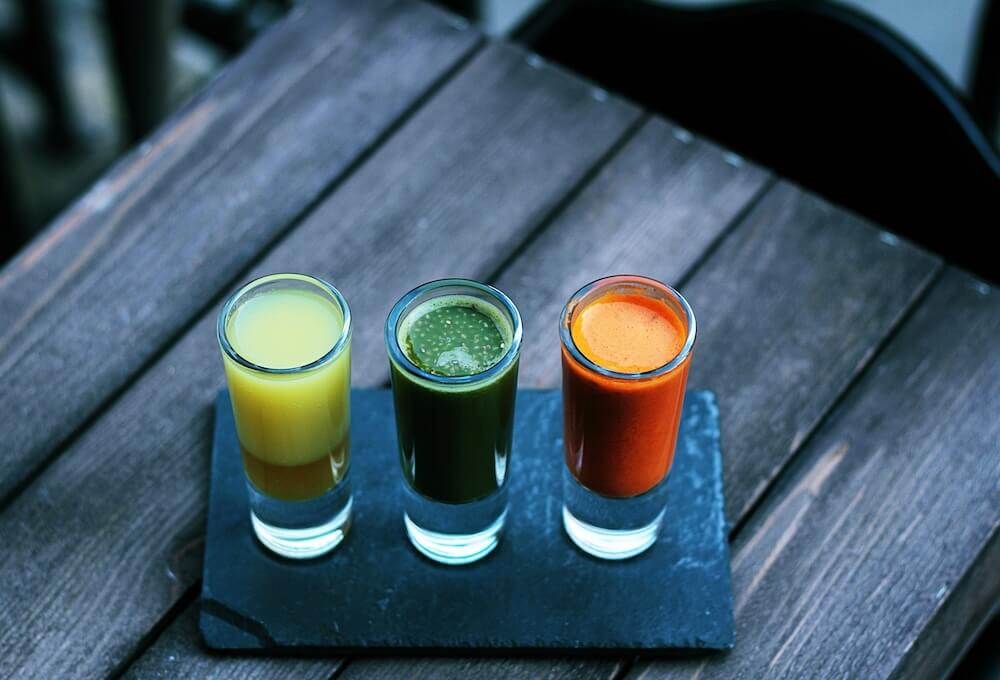Yoga is more than just a physical practice; it’s a holistic approach to well-being that integrates mind, body, and spirit. To truly optimize your yoga practice, it’s essential to fuel your body with the right nutrition. Just as yoga helps balance the body, proper nutrition supports this balance by providing the energy needed to perform poses and recover effectively.
In this blog post, we’ll explore the relationship between yoga and nutrition, offering dietary tips to complement your yoga practice and sharing some delicious recipes for pre- and post-yoga meals and snacks.
The Symbiotic Relationship Between Yoga and Nutrition
Yoga is known for its ability to enhance flexibility, strength, and mental clarity. However, achieving optimal performance in your practice also depends on what you put into your body.
Proper nutrition not only fuels your muscles but also supports your overall health, helping you to achieve a deeper and more sustained practice.

Energy and Endurance:
Yoga, especially dynamic styles like Vinyasa or Ashtanga, can be physically demanding. To maintain energy and endurance throughout your practice, your body needs a steady supply of nutrients. Carbohydrates, in particular, are essential as they are the body’s primary source of energy. Consuming complex carbohydrates, such as whole grains, fruits, and vegetables, before your practice ensures that you have the fuel needed to power through your session.
Muscle Repair and Recovery:
After an intense yoga session, your muscles need time to recover and rebuild. Protein plays a crucial role in this process by repairing muscle fibers that may have been stressed or strained during practice. Incorporating lean proteins, such as beans, lentils, tofu, or quinoa, in your post-yoga meals can aid in muscle recovery and promote overall strength.
Hydration and Flexibility:
Hydration is key to maintaining flexibility, one of the primary benefits of yoga. Dehydration can lead to muscle stiffness and cramps, making it harder to achieve and hold poses. Drinking water before, during, and after your yoga practice ensures that your muscles stay supple and your joints lubricated. Coconut water or herbal teas can also be great options for hydration, providing electrolytes and additional nutrients.
Mental Clarity and Focus:
Yoga is as much a mental practice as it is a physical one. Foods rich in omega-3 fatty acids, such as chia seeds, flaxseeds, and walnuts, support brain health and can enhance your mental clarity and focus during practice. Additionally, avoiding heavy, processed foods that can cause sluggishness or brain fog is crucial for maintaining the mental sharpness that yoga demands.
Pre-Yoga Nutrition: Fueling Your Practice
What you eat before your yoga practice can significantly impact your performance.
Ideally, a pre-yoga meal or snack should be light, easily digestible, and rich in complex carbohydrates and a small amount of protein. Here are some pre-yoga nutrition tips:
Timing is Everything:
Try to eat a small meal or snack about 1-2 hours before your practice. This gives your body enough time to digest and convert the food into energy. Avoid heavy meals right before yoga, as they can cause discomfort during practice, especially in poses that involve twisting or bending.
Focus on Carbs:
Opt for meals or snacks that are high in complex carbohydrates to provide sustained energy. Whole grains, fruits, and vegetables are excellent choices. Pair these with a small amount of protein to help stabilize blood sugar levels.
Hydrate:
Drink plenty of water before your practice, but avoid excessive amounts just before starting, as this can lead to discomfort during your session.
Pre-Yoga Snack Ideas:
Banana with Almond Butter: A quick and easy snack that provides a good balance of carbohydrates, healthy fats, and protein.
Oatmeal with Berries: A small bowl of oatmeal topped with fresh berries offers a great source of energy without being too heavy.
Green Smoothie: Blend spinach, banana, a scoop of protein powder, and almond milk for a refreshing, nutrient-packed drink
Post-Yoga Nutrition: Recover and Rebuild
After your yoga practice, it’s important to replenish your body with nutrients that aid in recovery. Post-yoga meals should focus on protein for muscle repair, along with a mix of carbohydrates and healthy fats to restore energy and support overall health.
Replenish with Protein:
Post-yoga, your body is in recovery mode. Protein helps repair and rebuild muscle tissues that were engaged during your practice. Aim to consume a balanced meal or snack within 30-60 minutes after your session.
Restore Glycogen Levels:
Glycogen is the stored form of glucose in your muscles and liver, and it gets depleted during physical activity. Consuming carbohydrates post-yoga helps restore these glycogen levels, ensuring your body has enough energy for the next practice.
Healthy Fats for Recovery:
Incorporate healthy fats, such as avocados, nuts, and seeds, into your post-yoga meals. These fats support hormone production and provide sustained energy.

Post-Yoga Meal Ideas:
Quinoa Salad with Roasted Vegetables: Quinoa is a complete protein, making it an excellent base for a post-yoga meal. Toss with roasted vegetables and a drizzle of olive oil for added flavor and nutrients.
Tofu Stir-Fry: Stir-fry tofu with a variety of colorful vegetables and serve over brown rice for a protein-packed, nutrient-dense meal.
Chickpea and Avocado Wrap: Combine mashed chickpeas with avocado, spinach, and a squeeze of lemon juice in a whole-grain wrap for a quick and satisfying post-yoga meal.
Recipes to Boost Your Yoga Practice
Here are a couple of recipes that are perfect for pre- and post-yoga meals:
Pre-Yoga Energy Balls:
Ingredients
- 1 cup rolled oats
- 1/2 cup almond butter
- 1/4 cup honey or maple syrup
- 1/4 cup chia seeds
- 1/4 cup dark chocolate chips
- 1 tsp vanilla extract
Instructions:
- In a large bowl, combine all ingredients and mix well until fully incorporated.
- Roll the mixture into small balls, about the size of a tablespoon.
- Store in an airtight container in the refrigerator for up to a week.
- Grab one or two balls before your yoga practice for a quick energy boost.
Post-Yoga Quinoa Power Bowl:
Ingredients:
- 1 cup cooked quinoa
- 1/2 cup black beans, rinsed and drained
- 1/2 avocado, sliced
- 1/4 cup cherry tomatoes, halved
- 1/4 cup shredded carrots
- 1 tbsp pumpkin seeds
- 1 tbsp olive oil
- 1 tbsp lemon juice
- Salt and pepper to taste
Instructions:
- In a bowl, layer the quinoa, black beans, avocado, cherry tomatoes, and shredded carrots.
- Sprinkle with pumpkin seeds.
- Drizzle with olive oil and lemon juice, and season with salt and pepper.
- Mix well and enjoy a nutritious and filling post-yoga meal.
Conclusion
Integrating yoga and nutrition is key to optimizing your practice and overall well-being. By paying attention to what you eat before and after your yoga sessions, you can enhance your energy levels, support muscle recovery, and maintain mental clarity.
Remember, the right nutrition is a vital part of your yoga journey, helping you to achieve balance, both on and off the mat. Whether you’re fueling up with a pre-yoga smoothie or recovering with a nourishing quinoa bowl, the food you choose plays a significant role in supporting your practice and promoting long-term health.





